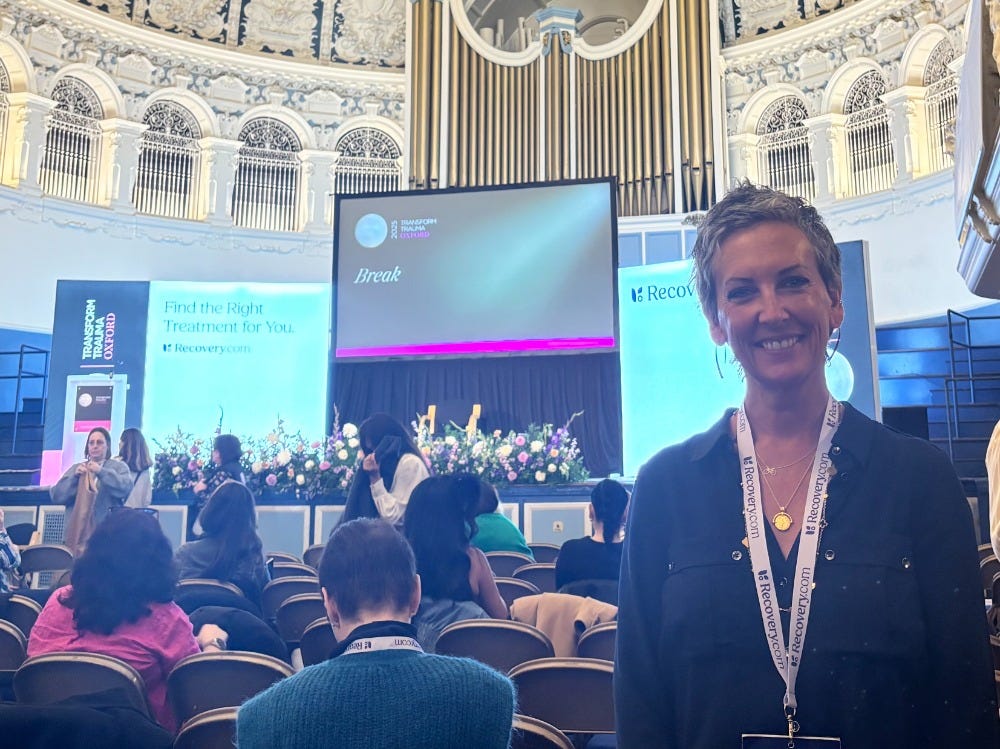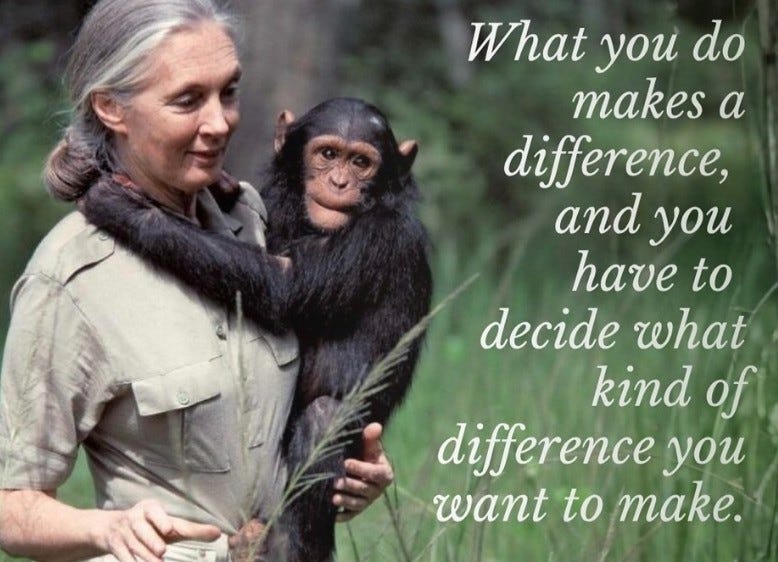What To Do With A Broken World
Small lives. Big ripples. Hope is not just wishful thinking.
I’ve just returned from Europe’s largest trauma-focussed mental health conference, where thousands of practitioners, researchers, psychologists, psychotherapists, therapists, counsellors and coaches came and gathered under one banner: Healing Our Relational World.
The message that echoed through every room was clear. Healing doesn’t happen in isolation, it happens between us. I don’t mean that in an airy-fairy way. I mean that in a feet-on-the-ground, look each other in the eye, help each other out, listen to each other, be there for one another, kind of way.
Individualism isn’t working.
Our society is splintering under the illusion of individuality and independence, and we are paying for it with loneliness, anxiety and disconnection. Trauma isn’t only what happens to us; it’s what happens inside us when there’s no one there to help us hold it. We have a deeper understanding of trauma now, about how we metabolise, or perhaps more importantly don’t metabolise our pain. We often carry it in the body when we live in an individualistic society.
Yet, amid all this pain, we can often overlook an extraordinary, almost miraculous power: human connection. When we look at the world around us, it is easy to feel hopeless, but we have the gift of each other’s stories of transformation, grit, and survival.
When we look beyond ourselves, we see each other. We hold each other. And the effect reaches far beyond the end of our arms.
This week, Jane Goodall’s passing resonated across the globe, and her final words, recorded for a Netflix documentary, landed with such power. She reminded us that every single one of us has a role to play; that we are part of something bigger; and that even when the world feels dark, there is still hope.
She was a woman who lived what you could describe as a small life, and yet she had a gigantic impact. I think for as long as we strive, or believe we need to live big lives, we miss the smaller things right in front of us that could have a ripple effect in changing the world, if only we’d let them.
Watch the entire documentary if you can. Her wisdom is out of this world, and her words are worth sitting with. Here’s a snippet:
I look back at the world I’ve left behind. What message do I want to leave? I want to make sure that you all understand that each and every one of you has a role to play. You may not know it, you may not find it. But your life matters. And you are here for a reason, and I just hope that reason becomes apparent as you live through your life.
I want you to know that whether or not you find that role you’re supposed to play, your life does matter. And that every single day that you live, you make a difference in the world. And you get to choose the difference that you make. I want you to understand that we are part of the natural world. And even today, where the planet is dark, there still is hope. Don’t lose hope.
If you lose hope, you become apathetic and do nothing. Above all, I want you to think about the fact that we are part of Mother Nature. We depend on Mother Nature for clean air, for water, for food, for clothing, for everything. And as we destroy one ecosystem after another, as we create worse climate change, worse loss of diversity, we have to do everything in our power to make the world a better place - for the children alive today, and for those that will follow.
You have it in your power to make a difference. Don’t give up. There is a future for you. Do your best while you’re still on this beautiful planet, Earth.
Hope is a verb
Hope isn’t wishful thinking. It’s putting into practice all the things we wish to see - there’s a huge difference. We need to be the world we want to live in. That’s how we’ll build a better future, and the more of us who do it, the sooner we’ll see change.
Don’t slip into thinking it’s too big. Start small. Be the change. And always remember: Hope is a verb, and begins exactly where we are.
Thanks, Pipa x



